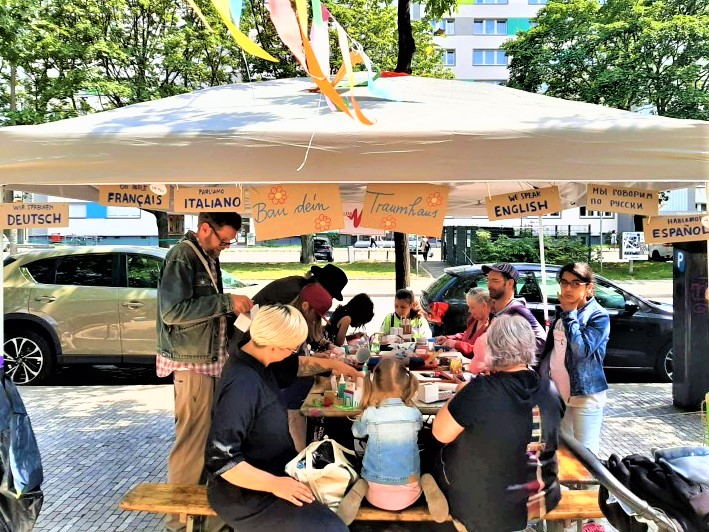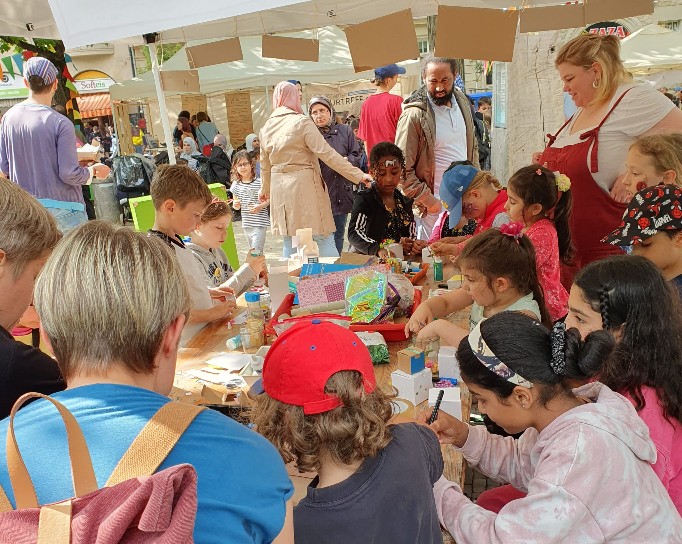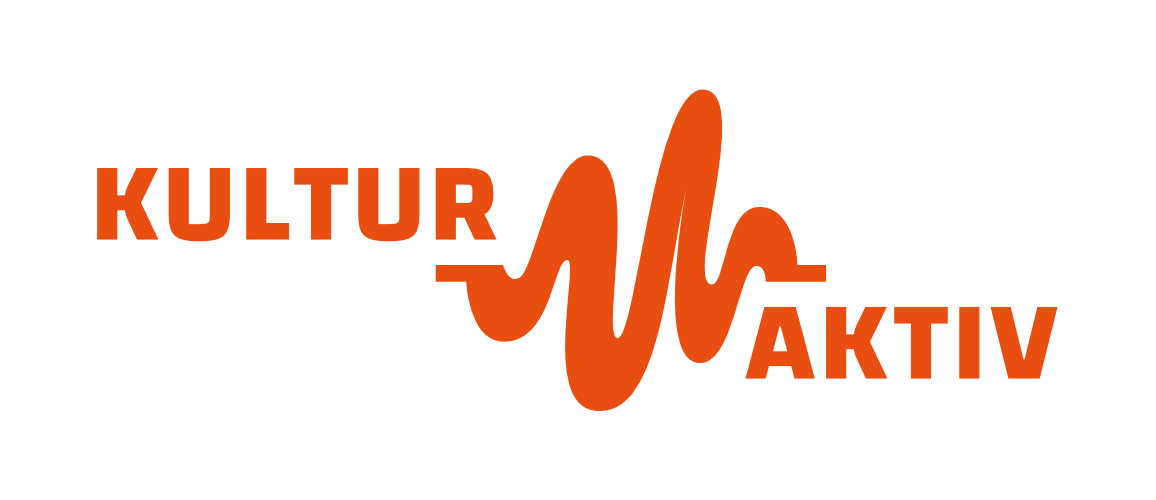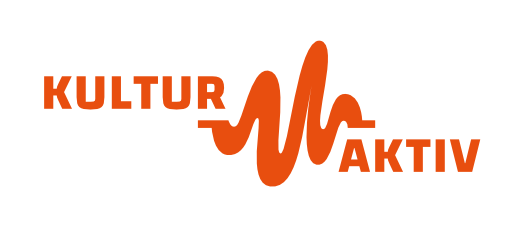Text: Falk Goernert · Fotos: Yvonn Spauschus
When is an island an island? In the lowest common (imaginative) denominator, a prominent or prominent land mass surrounded by (water) roads. In the middle of Dresden’s east, not far from the Elbe, there is such a small piece of land. It is not listed as an insular space on any city map. No atlas lists it as a place for volunteer Robinsons. And perhaps that is why this island is there: Bönischplatz in Johannstadt.

As an urban insular dry run between Pfotenhauerstraße and the former Blumenstraße, the Bönischplatz Festival has been taking place here since 2015. Originally organised by the Johannstädter Kulturtreff, it is now in the hands of the Stadtteilverein Johannstadt e.V., with festival organiser Samuel Fink at the helm of the organising team: an uncommercial district festival with real interactive encounters in real time; a lively place between the drinking fountain and the bookcase with a stage and stalls from various (district) initiatives, with local residents and everyone it brings here.
There is Tina from UFER-Projekte Dresden e.V., for example – originally based in Berlin, the biologist ended up in Dresden partly because of love. And love also included the city’s garden cultures, so the Johannstadt Community Garden was her first connection to the district. At the stand of the Uferprojekte, she will inform you about the Johannstadt educational projects for children and young people, among other things. And while she talks about city kohlrabi & co., clay pots are painted, filled with soil and taken home by visitors to the stand. Observe, marvel, plant – just do it.

And there are Aga and Daniel. In 2015, they moved from Worms to Dresden for work reasons. They moved straight to Johannstadt, first to a prefabricated flat in one of the 10-storey buildings and then to an old flat directly on Bönischplatz, where they now live with their three children. Let’s go, they thought to themselves in their young family two days before the festival began. After Aga had spontaneously offered children’s yoga last year, it was now to be children’s face painting and summery adhesive tattoos. So out came the table, in came the make-up brushes, in came the paint pots and the transformations could begin… “I have to make up a flamingo now”.

And in between, a strong wind keeps blowing across the square and sometimes heavy rain pelts down and I think about flying houses at our Kultur Aktiv stand: building without a building application and land ownership. In this spirit, six-year-old Zuhal is currently designing an entire garden-living area with a pool, playground and apartment building. And around her, people are gluing, folding and painting in equal measure. Ideas find their form again.
And the Atlas of Remote Islands (Judith Schalansky)? Well, Bönischplatz is applying for inclusion!
More information
Stadtteilverein Johannstadt e.V. · Stadtteilbüro im Stadtteilladen
Pfotenhauerstraße 66 · 01307 Dresden
Contact: Andrea Schubert, Torsten Görg, Bertil Kalex
Mail: stadtteilverein@johannstadt.de · Phone: 0163 717 448 41
Dresdner Nachbarschaften – sichtbar, vernetzt, engagiert!
Neighbourhoods are everywhere – we are right in the middle of it. With district walks, conversations in the green, creative workshops, exhibitions and much more.
Period
05-12.2023
Project coordination
Yvonn Spauschus (project management)
Yulia Vishnichenko · Moussa Mbarek · Nadine Wölk · Nazanin Zandi (workshop leader)
Rosa Brockelt · Rosa Hauch · Falk Goernert (moderation and documentation)
Cooperation partners
Club Passage / JugendKunstschule Dresden · Omse e.V. · Chinesisch Deutsches Zentrum e.V. · Treffpunkt Prohlis / Malteser Hilfsdienst e.V. · Stadtteilverein Johannstadt e.V. · Neues Volkshaus Cotta / Konglomerat e.V. · Montagscafé / Staatsschauspiel Dresden · Freizeitclub / Lebenshilfe Dresden e.V. · Quartiersmanagement Prohlis, Johannstadt und Gorbitz
Supported by
The project is funded by the State Ministry for Social Affairs and Social Cohesion. This measure is co-financed with tax funds on the basis of the budget passed by the Saxon state parliament within the framework of the state programme Integrative Maßnahmen.


